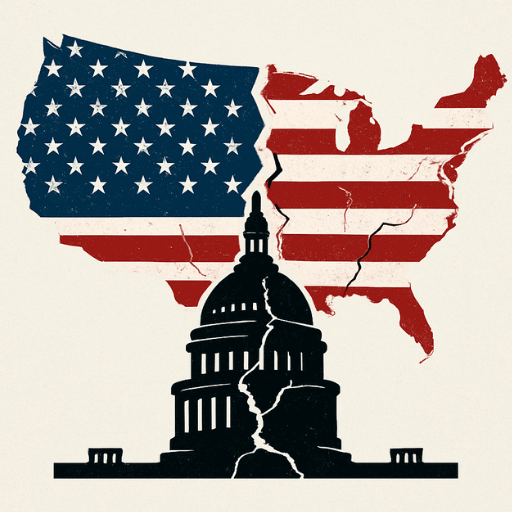Japan’s Response to Trump’s Tariffs: A Diplomatic Crisis in the Making
TLDR; Trump’s new tariffs on cars have really stirred things up, especially with Japan. They’re not happy, and they’re warning that this could mess up the relationship between the US and Japan, and even hurt the global economy. It’s a big deal because Japan’s weighing its options, and things are already tense on the world stage.
Japan’s worried about the money side of things. One of their top government officials, Economy Minister Yoshitaka Shindo, said these tariffs and other trade limits from the US could seriously damage the economic connection between our countries and shake the foundation of the global trading system. Japan is one of the largest exporters of vehicles to the U.S., with companies like Toyota, Honda, and Nissan playing a major role in both economies. If these companies are hit with steep tariffs, it won’t just affect Japan—it will hit American workers and consumers too, especially in states where Japanese automakers have large manufacturing plants.
Japan’s Economic Concerns
The news in Japan has shifted, and people there seem pretty uneasy about where the US-Japan relationship is headed. Commentators in outlets like Nikkei and NHK are pointing out that Japan might need to rethink its foreign policy, potentially reducing its reliance on the US as a strategic partner. These conversations are happening against the backdrop of ongoing global instability—from the war in Ukraine to rising tensions in the Indo-Pacific—and they add yet another layer of complexity to Japan’s strategic planning. The trade tensions with the US are casting a shadow over longstanding diplomatic and economic cooperation.
Trump made a statement earlier this month that didn’t help, saying the US has to protect Japan under their security treaty, but Japan doesn’t have to protect the US in return. That raised a lot of eyebrows and reignited debate over the 1960 U.S.-Japan Security Treaty, which many believe has been mutually beneficial for decades. The Washington Post reported that Japanese officials are now reassessing the reliability of the U.S. as a defense partner, especially as they increase their own defense spending in response to regional threats like North Korea and China.
Trump’s Aggressive Stance
Rahm Emanuel, who served as U.S. Ambassador to Japan from 2021 to 2023, has been vocal about how important this relationship is. He highlighted that Japan has been the biggest foreign investor in the US for the last four years, with Japanese companies employing over 1 million Americans—many in high-quality manufacturing jobs. These investments span everything from auto plants in Kentucky and Alabama to tech firms in California. Emanuel warned that the tariffs could discourage further investment, damage key industries, and even put national security at risk.
The Importance of US-Japan Relations
Japan also hosts the largest U.S. military presence in the world, with over 50,000 American troops stationed there across major bases like Yokota, Okinawa, and Misawa. This is a cornerstone of the U.S. strategy to maintain stability and counter China’s influence in the Indo-Pacific region. Emanuel pointed out that the alliance isn’t just about economics—it’s also about defense cooperation, intelligence sharing, and diplomatic alignment on key global issues.
Emanuel’s concerned that if Japan changes its foreign policy—say, by pivoting more toward Europe or cutting back on purchases of American defense equipment—it could deal a major blow to the U.S. military-industrial complex. Companies like Lockheed Martin and Boeing, which supply Japan with jets, missile systems, and radar equipment, could lose billions in contracts. Ironically, the tariffs aimed at protecting American jobs could end up destroying them.
Potential Consequences of Tariffs
Plus, these tariffs could make it harder for the U.S. to coordinate effective sanctions against China. Historically, Japan, South Korea, and Taiwan have backed U.S.-led economic pressure campaigns against Beijing. But if these countries begin to question Washington’s reliability or fairness, they may hesitate to go along with future strategies, weakening efforts to contain China’s ambitions.
Emanuel also pointed to broader global trends. He argued that the Trump administration’s unpredictability and disregard for traditional alliances has encouraged authoritarian regimes. After the U.S. gave mixed signals on Ukraine, China increased its assertiveness in Asia, ramping up naval patrols near disputed territories and escalating confrontations with Japan and Vietnam in the South China Sea.
The Broader Geopolitical Landscape
He believes the administration’s mishandling of national security and foreign policy has made the U.S. look weaker and less trustworthy. That, in turn, emboldens rivals and shakes the foundations of the international order built on collective defense and cooperation.
Emanuel is urging a fundamental rethink of U.S. foreign policy, emphasizing that strength comes from unity, not isolation. He’s calling on leaders to rebuild trust with allies like Japan before the damage becomes irreversible.
Conclusion: A Call for Strategic Action
So, as Japan figures out how to respond to these tariffs, the future of US-Japan relations and the global economy is up in the air. This whole situation shows how tricky international trade and security can be, and how important it is to have smart diplomacy and strong partnerships—especially when the stakes are this high.






